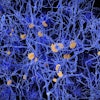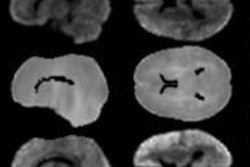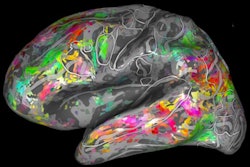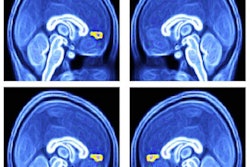Yale University researchers used functional MRI (fMRI) to help train children with Tourette syndrome to control their repetitive movements and vocal outbursts, according to a study published online August 13 in Biological Psychiatry.
The approach, known as real-time functional MRI (fMRI) neurofeedback, allows patients to monitor the function of their own brain in real-time and is being used to treat conditions from depression to Parkinson's disease.
A team led by senior author Michelle Hampson, PhD, an associate professor in Yale's department of radiology and biomedical imaging, enrolled individuals ages 11 to 19 with Tourette syndrome who displayed a certain frequency of "tics," as measured by the Yale Global Tic Severity Scale.
The subjects were asked to alternately raise and lower activity in their brain's supplementary motor area, which is associated with these tics, while their brain activity was displayed on a real-time graph during the fMRI scans.
The researchers observed a significant reduction of tics in subjects during the training, compared with symptom improvements in a control condition, which featured placebo and motivation effects but did not include the real-time neurofeedback. The difference between the two sets of participants suggests that the neurofeedback may be helpful in treating Tourette symptoms.
"Currently available treatments for tics in Tourette syndrome include behavior therapy and pharmaceuticals, but not everyone responds," noted study co-author Denis Sukhodolsky, PhD, an associate professor in the Yale Child Study Center, in a statement. "This study is the first of its kind showing that real-time fMRI neurofeedback has potential as a treatment for Tourette syndrome."


.fFmgij6Hin.png?auto=compress%2Cformat&fit=crop&h=100&q=70&w=100)





.fFmgij6Hin.png?auto=compress%2Cformat&fit=crop&h=167&q=70&w=250)











